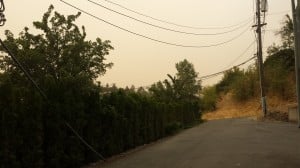
It all started out with a question about international development, local governments, and the things that either do or do not happen on the ground in less developed countries. The thread began with an inquiry into the long term viability of infrastructure developments in poor rural areas, but before long I found myself pondering much deeper and more personal territory. It also bounced back and forth into the territory of politicians and the engagement or lack thereof on behalf of citizens – not just in less developed places, but back in the USA or any other highly developed nation.
Recently I wrote a post about the anatomy of the Spirit of Place. That feeds in directly to this line of questioning because the Spirit of a Place is made up of the the many bits of matter inside of it and all the actions that they do. You can think of this as a health issue, which it is, but it’s also just a basic matter of how all these pieces fit together to affect the personality of a Place. Your personality is affected by the precise balance of chemicals (endogamous and otherwise) in your brain and body, and those are in turn affected by the actions of not only the cells which hold your DNA, but also by the actions of the other microorganisms that make their home inside you. So, too, the personality of a Place is built up from the results of all those various relationships amongst the “cells” within that Place, whether those cells are mineral, vegetable or animal.
So, what are my values and how do those relate to my actions? If I say that I put my children first in my life, but I never see them because I’m always at work, do I really put my children first? What if the reason that I never see my kids is because the only way I can give them all the things that they need to survive in life is by working three jobs to make enough money to make ends meet? It might be killing me, but my kids have a safe home, plenty of healthy food in their bellies, a great school, nice clothes. That choice may not be someone else’s way to show that their children are their highest value, but maybe it’s mine.
This is not a description of my actual life, but it is the description of many other people’s lives. Putting the story into the first person is a good way to walk around in it for a moment and gain empathy for other people’s choices. It helps in the process of understanding how a certain action may be a result of spoken values or a result of hidden values – values of which the person doing the action may not even be aware.
Personal values are only the tip of the iceberg, though. Values are not only things we hold deep inside ourselves which inform our behavior and our choices. They are also things which we share with various communities of people. We share some of our core values with our family of birth or our chosen family. We share some core values with our co-religionists. We share values with the cultures that we live in, as well, both the wider culture and the various subcultures we are a part of.
When we try to live according to our values, we cannot just do so in the private sphere. Our values-driven actions spill into the public space, whether we intend for them to do so or not. One might even argue that all of our actions are values-driven. Although some of our actions seem to be against our values, we tend to have reasons for taking those actions that speak of competing values that live alongside of, or interfere with our stated core. As we interact with other people in our families and communities, those values bump into friction points. That’s where personal values often turn into political ones.
In the United States, politicians talk an awful lot about family values. They claim that they will vote in ways that promote core American Family Values, which means the value of a hardworking family with one mother, one father, and at least two kids. They say that their votes to cut taxes are to benefit these struggling families, but in fact the taxes they cut are almost always the taxes of wealthy people who may or may not fit the “nuclear family” ideal. They certainly don’t fit the “struggling family” picture. At the same time, they cut services that directly benefit actual struggling families, and they blame those who are falling from “middle class” down into poverty for their own circumstances. No matter how I turn this idea over in my head, I cannot find a way in which the values that the politicians speak of are actually demonstrated by their actions. Worse than that, the values that I see represented by their actions are quite the opposite of what they claim. This is true even when I put the story of the politician into the first person.
So, how do our values get expressed in the political sphere? And how do they effect the Spirit and the Nature of Place?














